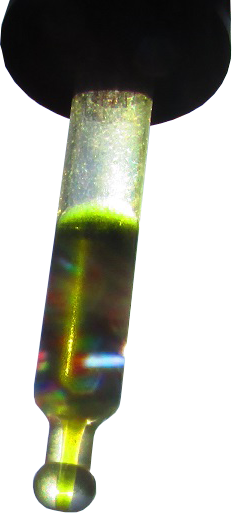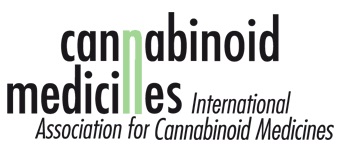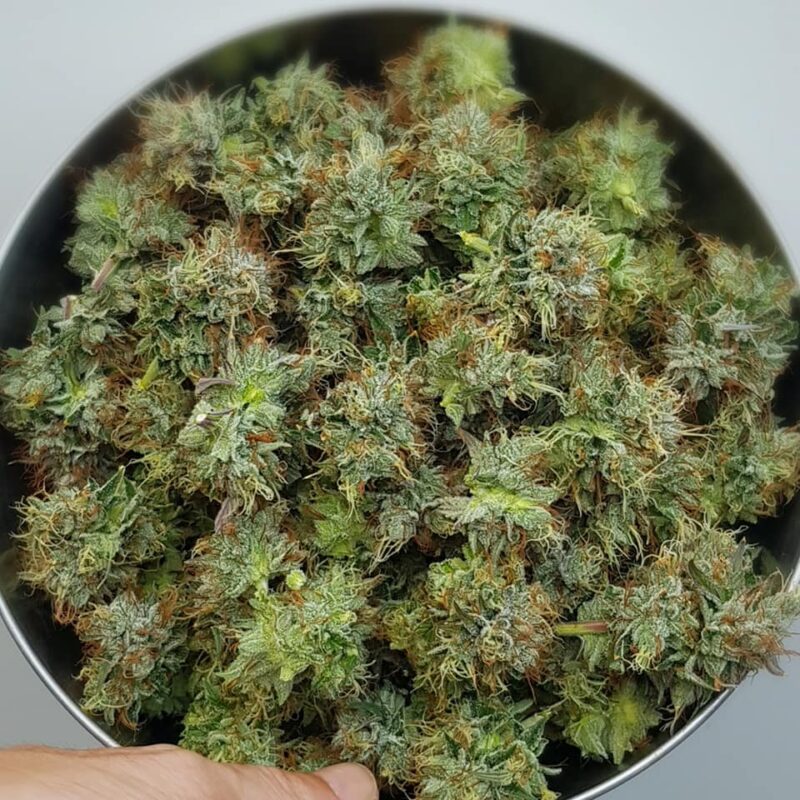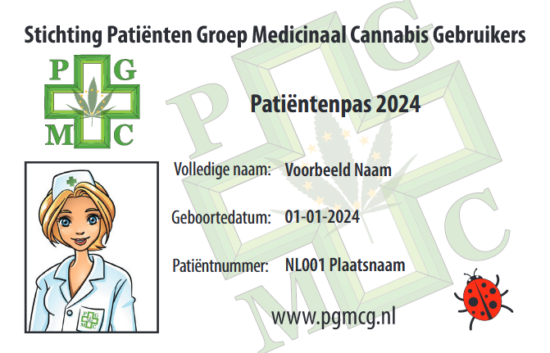Cannabis is nuttig bij de behandeling van misselijkheid en braken als gevolg van chemotherapie bij kanker
Wetenschap/Mens: Cannabis is nuttig bij de behandeling van misselijkheid en braken als gevolg van chemotherapie bij kanker
In een studie met 81 patiënten, die ondanks standaardmedicatie last hadden van misselijkheid en braken tijdens kankerchemotherapie, heeft een cannabisextract de symptomen verbeterd. De studie werd uitgevoerd op verschillende locaties in Australië. De studiebehandeling bestond uit één cyclus van 1-4 capsules met oraal THC 2,5 mg/CBD 2,5 mg, driemaal daags, van dag -1 tot dag 5, en één cyclus met bijpassend placebo in een cross-over design.
In totaal werden 81 deelnemers gerandomiseerd en 72 deelnemers die twee cycli voltooiden werden opgenomen in de effectiviteitsanalyses. De complete respons was met cannabis verbeterd van 14% tot 25% met vergelijkbare effecten op afwezigheid van emesis, gebruik van reddingsmedicatie, afwezigheid van significante misselijkheid, en samenvattende scores voor de Functional Living Index-Emesis (FLIE). Eenendertig procent ervoer matige of ernstige cannabinoïde-gerelateerde bijwerkingen zoals sedatie, duizeligheid of desoriëntatie, maar 83% van de deelnemers verkoos cannabis boven placebo. De auteurs concludeerden dat “de toevoeging van orale THC:CBD aan standaard anti-emetica geassocieerd was met minder misselijkheid en braken, maar wel met bijkomende bijwerkingen”.
Science/Human: Cannabis is helpful in the treatment of nausea and vomiting due to cancer chemotherapy
In a study with 81 patients, who experienced nausea and vomiting during cancer chemotherapy despite standard medication, a cannabis extract improved the symptoms. The study was conducted at several sites in Australia. Study treatment consisted of one cycle of 1-4 self-titrated capsules of oral THC 2.5 mg/CBD 2.5 mg three times daily, from days -1 to 5, and 1 cycle of matching placebo in a crossover design.
A total of 81 participants were randomised and 72 completing two cycles were included in the efficacy analyses. Complete response was improved with cannabis from 14% to 25% with similar effects on absence of emesis, use of rescue medications, absence of significant nausea, and summary scores for the Functional Living Index-Emesis (FLIE). Thirty-one percent experienced moderate or severe cannabinoid-related adverse events such as sedation, dizziness, or disorientation, but 83% of participants preferred cannabis to placebo. Authors concluded that the “addition of oral THC:CBD to standard antiemetics was associated with less nausea and vomiting but additional side-effects.”
Marian Hutten, voorzitter en oprichtster PGMCG
Genomineerd als Patiënt Ambassadeur van de IACM 2018-2021
Nederlands Patiënt afgevaardigde en vertaler van de IACM
De International Association for Cannabinoid Medicines
CannabisMedOrg
Bonn, Germany
Lees ook
- Opheldering van de mechanismen van cannabinoïde effecten op borstkankercellen
Wetenschap: Opheldering van de mechanismen van cannabinoïde effecten op borstkankercellen
- Volgens een klinische studie verbetert Cannabis de levenskwaliteit bij hersenkankerpatiënten
Wetenschap/Mens: Cannabis verbetert levenskwaliteit bij hersenkankerpatiënten volgens een klinische studie
- Endocannabinoïden kunnen effectief zijn bij strottenhoofdkanker
Wetenschap/Cellen: Endocannabinoïden kunnen effectief zijn bij strottenhoofdkankers
- Twee patiënten met leverkanker genezen na gebruik cannabisolie: UMCG start onderzoek
Twee patiënten met leverkanker genezen na gebruik cannabisolie. Het UMCG start een studie naar het effect van cannabisolie bij patiënten met uitbehandelde leverkanker
- Nieuwe studies bevestigen de werkzaamheid van cannabis bij borstkanker
Tegenwoordig wint medicinale cannabis snel meer belangstelling van veel mensen met verschillende ziekten. Maar werkt cannabis ook bij borstkanker?
- Cannabis kan effectief zijn bij de behandeling van lymfeklierkanker volgens een case report
Wetenschap/Mens: Cannabis kan effectief zijn bij de behandeling van Hodgkin-lymfoom volgens een case report
- Cannabis vermindert de ontwikkeling van neuropathie bij kankerpatiënten die worden behandeld met oxaliplatine
Wetenschap/Mens: Cannabis vermindert de ontwikkeling van neuropathie bij kankerpatiënten die worden behandeld met oxaliplatine
- Eindelijk onderzoek in Nederland (Erasmus MC) om medicinale cannabis in te zetten bij kanker (hersentumor)
Eindelijk onderzoek naar cannabis bij kanker in Nederland
- Cannabisgebruik is geassocieerd met een verminderd risico op het ontwikkelen van HPV-negatieve hoofd- en nekkankers
Wetenschap/Mens: Cannabisgebruik is geassocieerd met een verminderd risico op het ontwikkelen van HPV-negatieve hoofd- en nekkankers
- Gebruik van cannabinoïden en terpenen nuttig bij longkanker
Wetenschap/Cellen: Cannabis induceert celdood in menselijke longkankercellen en Activering van de CB1-receptor vermindert de groei van longkankercellen.
- Ouder en patiënt perceptie van medicinale cannabis in de kinderkankercontext, volgens interviews
Wetenschap/Mens: Ouder en patiënt perceptie van medicinale cannabis in de kinderkankercontext volgens interviews
- Bijna 1 op de 10 oudere kankerpatiënten gebruikt cannabis
Wetenschap/mens: Bijna 1 op de 10 oudere kankerpatiënten gebruikt cannabis
- Symposium over cannabis- en kankeronderzoek van 15 – 18 december 2020
Het National Cancer Institute Cannabis, Cannabinoids, and Cancer Research Symposium vindt virtueel plaats van 15-18 december 2020.
- Veel kankerpatiënten gebruiken cannabis, maar zijn vaak niet goed geïnformeerd
Wetenschap / Mens: Veel kankerpatiënten gebruiken cannabis, maar zijn vaak niet goed geïnformeerd
- THC verzwakt colitis en voorkomt de ontwikkeling van colitis-geassocieerde dikke darm kanker.
Wetenschap / Dier: THC verzwakt colitis en voorkomt de ontwikkeling van colitis-geassocieerde dikke darm kanker.
- Volgens een rapport kan cannabisgebruik het risico op kanker verlagen
Wetenschap / mens: Volgens een rapport kan cannabisgebruik het risico op kanker verlagen
- De antikankereffecten van CBD worden verminderd in aanwezigheid van bloedserum
Wetenschap / Cellen: De antikankereffecten van CBD worden verminderd in aanwezigheid van bloedserum
- Verschillende mechanismen van cytotoxische effecten van CBD en THC tegen darmkankercellen
Wetenschap / Cellen: verschillende mechanismen van cytotoxische effecten van CBD en THC tegen darmkankercellen
- CBD verhoogde effectiviteit van conventionele chemotherapie tegen eierstokkanker
Wetenschap / Cellen: CBD verhoogde effectiviteit van conventionele chemotherapie tegen eierstokkanker
- Een overzicht toont dat verschillende componenten van cannabis antikankereffecten kunnen hebben
Wetenschap: Uit een review blijkt dat verschillende componenten van cannabis antikankereffecten kunnen hebben.
- Bij prostaatkanker kan cannabis nuttig zijn, meer onderzoek is gerechtvaardigd
Wetenschap / Mens: patiënten met prostaatkanker kunnen enige verlichting vinden door Cannabis
- Kanker
Een van de indicaties van het BMC is dat medicinale cannabis behulpzaam kan zijn bij misselijkheid, verminderde eetlust, vermagering en verzwakking bij kanker en aids.
- Cannabis geeft een verbetering van de symptomen bij patiënten met kanker ondanks verlaging dosering opiaten
Wetenschap / Mens: Cannabis geeft een verbetering van de symptomen bij patiënten met kanker ondanks de verlaging van opiaat dosering
- THC en CBD verminderde proliferatie van longkankercellen
Wetenschap / Cellen: THC en CBD verminderde proliferatie van longkankercellen
- Online informatie over cannabinoïden bij kinderen met kanker beschouwd als bevredigend
Wetenschap: De online informatie over cannabinoïden bij pediatrische kanker werd beschouwd als “bevredigend”
- Cannabis blad poeder vermindert pijn, angst en depressie bij patiënten met kanker
Wetenschap / Mens: Cannabis blad poeder vermindert de pijn bij patiënten met kanker
- Patiënten met Kanker: Verlichting van Symptomen met Cannabis
Cannabis verlicht symptomen bij kanker
- Omega-3 vetzuren kunnen effectief zijn bij borstkanker
Wetenschap/Cellen: Omega-3 vetzuren en endocannabinoïden derivaten kunnen een anti-kanker effect hebben
- Cannabidiol (CBD) gaat direct naar de mitochondriën van kankercellen, om ze te doden
Wetenschap / Cellen: CBD gaat direct af op de mitochondriën van kankercellen, om ze te doden
- Oraal toegediende cannabisolie kan gewichtstoename bij kanker gerelateerde anorexia verbeteren
Wetenschap / Mens: In een kleine studie, verbeterde oraal toegediende cannabis kanker-gerelateerde anorexia
- Een flavonoïde van de cannabisplant kan anti-kanker eigenschappen hebben
Een flavonoïde van de cannabis plant kan anti-kanker eigenschappen hebben
- Cannabisgebruik vermindert risico op kanker bij patiënten met ziekte van Crohn
Wetenschap / Mens: Cannabisgebruik vermindert het risico op kanker bij patiënten met de ziekte van Crohn
- Cannabidiol (CBD) gunstig effect bij behandeling diverse soorten kanker
Cannabidiol kan gunstig effect hebben bij diverse vormen van kanker
- Nieuw mechanisme betrokken bij kanker-remmende effecten van CBD
Er is een nieuw mechanisme ontdekt betreffende de kanker-remmende effecten van CBD
- Beoordeling entourage-effect antitumorale actie bij borstkanker
Beoordeling entourage-effect antitumoraal effect bij borstkanker
- Manuel Guzman: Cannabis voor het beheren van kanker symptomen. THC versie 2.0?
Guzman vertelt hoe cannabis kan helpen bij de symptomen van kanker
- Corrie Yelland vrij van Endeldarmkanker door Cannabisolie
Corrie was niet blij met de opties die haar werden geboden na een diagnose met endeldarmkanker. Ze raadpleegde een vriend overzee die arts is en daarna bestudeerde ze de wetenschap over cannabis en het endocannabinoïdesysteem. Nadat ze zichzelf had opgeleid over het endocannabinoïdesysteem, ging ze cannabisolie gebruiken en genas zichzelf volledig. In 2012 werd ze […]
- Studie: Cannabis effectief in verlichting symptomen bij kankerpatiënten
Deze studie geeft aan dat cannabis verlichting symptomen geeft bij kanker
- Studies: Cannabis vertraagt de ontwikkeling van kanker
Onderzoek toont aan – met voorzichtig optimisme – dat cannabis de ontwikkeling van kankercellen kan doden of vertragen. Medicinale cannabis is bekend bij kankerpatiënten. Een groot aantal Israeli krijgen cannabis als onderdeel van hun palliatieve zorg voor de behandeling van de symptomen van de ziekte, het is effectief gebleken in het verlichten van chronische pijn, […]
- 10 Voordelen van cannabis bij kanker
10 voordelen van cannabis bij kanker
- In een observationele studie verbeterde CBD angst en depressie
Wetenschap/Mens: CBD verbeterde angst en depressie in een observationele studie
- Cannabidivarin (CBDV) kan hersenfunctie bij autisme normaliseren
Wetenschap/Mens: Cannabidivarin (CBDV) kan hersenfunctie bij autisme normaliseren
- Studie: Cannabisgebruik heeft geen negatief effect op mannelijke seksuele functie
Wetenschap/Mens: Cannabisgebruik heeft geen negatief effect op mannelijke seksuele functie volgens langetermijnstudie
- Hoe gebruik jij cannabis als medicijn?
Hoe gebruik jij cannabis als medicijn
- Studie: Lage doses THC kunnen de pijnstillende effecten van opioïden verbeteren
Wetenschap/Mens: Lage doses THC kunnen de pijnstillende effecten van opioïden verbeteren volgens een studie met experimentele pijn
- Hoe lang gebruik jij al cannabis als medicijn en wordt het erkend door je zorgverlener?
Hoe lang gebruik jij al cannabis als medicijn en wordt het erkend door je zorgverlener?
- Wat moet er volgens jou veranderen aan het medicinaal cannabisprogramma in Nederland?
Wat moet er volgens jou veranderen aan het medicinaal cannabisprogramma in Nederland?
- Update over de kennis van cannabisverbindingen, waaronder 125 cannabinoïden en 120 terpenen
Update over de kennis van cannabisverbindingen, waaronder 125 cannabinoïden
- Diverse cannabinoïden zoals o.a. CBG, CBD en THC zijn antioxidantia
Diverse cannabinoïden zijn antioxidantia
- Palliatieve zorg
Palliatieve zorg en gebruik medicinale cannabis
- Veel patiënten geloven dat CBD nuttig kan zijn bij het verminderen van pijn
Wetenschap/Mens: Veel patiënten geloven dat CBD nuttig kan zijn bij het verminderen van pijn
- Embrace Life/Erasmus MC: onderzoek werking Cannabisolie op hersentumoren (Livestream)
Embrace Life/Erasmus MC: onderzoek werking Cannabisolie op hersentumoren (Livestream)
- CBD kan een veelbelovend niet-toxisch geneesmiddel voor behandeling tumoren zijn
Wetenschap/Cellen: Hoe CBD zijn anti-kanker effecten uitoefent
- Ongeveer 20% van pediatrische oncologiepatiënten in Canada gebruikt cannabisproducten
Wetenschap/Mens: Ongeveer 20% van pediatrische oncologiepatiënten in Canada gebruikt cannabisproducten
- Lage niveaus van THC kunnen vermindering van acute pijn door hydromorphone bij gezonde volwassenen verhogen
Wetenschap/Mens: Lage niveaus van THC kunnen vermindering van acute pijn verhogen door hydromorphone bij gezonde volwassenen verhogen
- Cannabinoïden zijn nuttig bij glioblastoma (hersentumor)
Cannabinoiden kunnen nuttig zijn bij hersentumor.
- Embrace Life: Livestream over wetenschappelijk onderzoek naar het effect van cannabisolie op hersentumoren
Embrace Life: Livestream over wetenschappelijk onderzoek naar het effect van cannabisolie op hersentumoren
- In Frankrijk start een 2-jarig onderzoek met medicinale cannabis met het oog op legalisering
Frankrijk: Start van een 2-jarig onderzoek met medicinale cannabis
- Veel patiënten met inflammatoire darmziekte gebruiken cannabis voor de symptomen ervan
Veel patiënten met inflammatoire darmziekte gebruiken cannabis
- Cannabidiol (CBD) en cannabivarin (CBV) kunnen helpen bij post-Covid-19 neurodegeneratie
Wetenschap/Cellen: Cannabidiol en cannabivarin kunnen helpen bij post-Covid-19 neurodegeneratie
- Langdurige cannabisbehandeling van chronische pijn resulteerde in betere uitkomsten vergeleken met conventionele behandeling
Wetenschap/Mens: Langdurige cannabisbehandeling van chronische pijn resulteerde in betere uitkomsten vergeleken met conventionele behandeling
- CBD toont antivirale effecten tegen het nieuwe coronavirus
Wetenschap: CBD toont antivirale effecten tegen het nieuwe coronavirus
- Cannabis kan helpen bij pijn van instabiele angina pectoris en coronaire hartziekte
Wetenschap/Mens: Cannabis kan helpen bij pijn van instabiele angina pectoris en coronaire hartziekte, volgens een case report
- Brightlands Campus Greenport Venlo gaat de cannabisplant verder onderzoeken na ervaring analyse
Brightlands Campus Greenport Venlo gaat de cannabisplant verder onderzoeken na ervaring analyse
- Terpenen, Flavonoïden en Fytosterolen
Er zijn inmiddels al meer als 100 cannabinoiden ontdekt, waar CBD en THC de bekendste van zijn. Voor de medicinale toepassing van cannabis, zijn terpenen misschien nog wel belangrijker. Terpenen komen ook voor in andere planten. Terpenen kunnen zelf actief zijn, zoals myrceen (rustgevend), limoneen (antidepressivum), pineen (maakt luchtwegen vrij) en linalool (vermindert angst). Ook […]
- In de Tsjechische Republiek is een Centrum voor medisch cannabisonderzoek opgericht in universitair ziekenhuis
Tsjechische Republiek: Centrum voor medisch cannabisonderzoek opgericht in universitair ziekenhuis
- Cannabispatiënten schrijven politiek aan en luiden de noodklok voor de verkiezingen!
Een aantal patiënten hebben begin deze maand brieven geschreven aan kamerleden omtrent o.a. de thuiskweek van medicinale cannabis.
- Hardlopen stimuleert het endocannabinoïde systeem en vermindert angst
Wetenschap/Mens: Hardlopen stimuleert het endocannabinoïde systeem en vermindert angst
- Leden Europees Parlement richten Europese Medicinale Cannabis Alliantie op
Leden Europees Parlement richten Europese Medicinale Cannabis Alliantie op
- Inhalatie van cannabis vermindert angst en stress
Wetenschap/mens: Inhalatie van cannabis vermindert angst en stress
- Cannabis verbetert symptomen bij colitis ulcerosa in een placebo gecontroleerd onderzoek
Wetenschap/Mens: Cannabis verbetert symptomen bij colitis ulcerosa in een placebo gecontroleerd onderzoek
- Olga heeft een hersentumor en gebruikt wietolie, ze strijdt nu voor een legaal medicijn
Olga heeft een hersentumor en gebruikt hiervoor wietolie, hiervoor heeft zij stichting Embrace Life opgericht
- Cannabisgebruik is geassocieerd met minder ziekenhuisheropnames bij patiënten met prikkelbare darmsyndroom (PDS)
Wetenschap/Mens: Cannabisgebruik is geassocieerd met minder ziekenhuisheropnames bij patiënten met prikkelbare darmsyndroom
- Cannabisgebruik geassocieerd met pijnvermindering op lange termijn en vermindering gebruik opiaten
Wetenschap/Mens: Cannabisgebruik werd geassocieerd met pijnvermindering op lange termijn in groot observationeel onderzoek
- Cannabisgebruik verlaagt verhoogde bloeddruk bij oudere volwassenen
Wetenschap/mens: Cannabisgebruik verlaagt verhoogde bloeddruk bij oudere volwassenen
- Cannabinoïden hebben een anti-inflammatoir effect bij COVID-19 en verminderen ontwikkeling longfibrose
Cannabinoïden hebben een anti-inflammatoir effect bij COVID-19 en verminderen ontwikkeling longfibrose
- Cannabisgebruik maakt het stoppen van opiatengebruik bij een groot aantal pijnpatiënten mogelijk
Wetenschap/mens: Cannabisgebruik kan het stoppen van opiatengebruik bij een groot aantal pijnpatiënten mogelijk maken
- Wat voor effect heeft cannabis op je hart?
Welk effect heeft cannabis op je hart?
- Cannabis vermindert het gebruik van voorgeschreven opiaten
Wetenschap/mens: Cannabis vermindert het gebruik van voorgeschreven opioïden
- Volgens onderzoek is Cannabis effectief bij zelfmanagement van endometriose
Wetenschap/mens: Cannabis kan effectief zijn in het zelfmanagement van endometriose volgens een onderzoek
- Heeft gammabestraling negatief effect op medicinale cannabis?
Gamma-bestraling is een controversiële ontsmettingsmethode die nergens ter wereld is onderzocht op veiligheid voor gerookte of geïnhaleerde producten.
- Cannabis kan chronische bekkenpijn bij vrouwen verbeteren
Cannabis kan chronische bekkenpijn bij vrouwen verbeteren volgens een onderzoek
- Het gebruik van CBD-full-spectrum-extracten met een laag THC-gehalte kan leiden tot een positief urinemonster op THC.
Wetenschap / Mens: Het gebruik van CBD-full spectrumolie-extracten met een laag THC-gehalte kan leiden tot een positief urinemonster op THC.
- Cannabisgebruik verhoogt het risico op werkgerelateerd letsel niet
Wetenschap / Mens: Cannabisgebruik verhoogt het risico op werkgerelateerd letsel niet
- Een olieachtige formulering van CBD en sublinguale CBD resulteerde in vergelijkbare bloedconcentraties
Een olieachtige formulering van CBD en sublinguale CBD resulteerde in vergelijkbare bloedconcentraties
- Volgens een grote prospectieve studie verbetert gebruik cannabis pijn
Wetenschap / Mens: Cannabis verbetert pijn in grote, prospectieve open studie
- LUMC en CHDR krijgen 1,9 miljoen voor studie naar effect cannabis bij chronische pijn
1,9 miljoen euro voor studie naar effect cannabis op chronische pijn
- De onderliggende mechanismen van de pijnstillende effecten van CBD
Wetenschap / Cellen: De onderliggende mechanismen van de pijnstillende effecten van CBD
- CBD is effectief in het verminderen van sociale angst en psychotische symptomen
Wetenschap / Mens: CBD was effectief in het verminderen van sociale angst en psychotische symptomen volgens een casereport
- Meer dan een kwart van de vrouwen gebruikt cannabis voor de behandeling van menopauzeklachten
Wetenschap / Mens: meer dan een kwart van de vrouwen gebruikt cannabis voor de behandeling van menopauzeklachten
- Medicinal Cannabis Europe roept op tot een resolutie van het Europees Parlement over medicinale cannabis.
Medicinal Cannabis Europe roept op tot een resolutie van het Europees Parlement over medicinale cannabis.
- IACM: gratis webinars en online jubileumbijeenkomsten tussen oktober en december 2020
IACM: gratis webinars en online jubileumbijeenkomsten tussen oktober en december 2020
- MS-patiënte Alexandra en het gebruik van pure THC-olie
Sinds 1993 ben ik MS-patient en heb altijd cannabis als medicijn gebruikt. Graag wil ik dat delen, meer mensen kunnen hier veel baat bij hebben. THC voor MS Verslag van de THC-kuur á la Rick Simpson voor multiple sclerose THC voor MS Verslag van de kuur volgens het Rick Simpson protocol = 3 maanden totaal […]
- THC was in staat de symptomen van niet-alcoholische leververvetting (NAFLD) te verbeteren
Wetenschap / Dier: THC was in staat de symptomen van niet-alcoholische leververvetting (NAFLD) te verbeteren
- Liberalisering van CBD-producten leidde tot vermindering van andere medicijnen
Wetenschap / Mens: Liberalisering van CBD-producten leidde tot de vermindering van andere medicijnen
- Medicinale Cannabis verbetert Obsessief Compulsieve Stoornis (OCS)
Wetenschap / Mens: Cannabis verbetert obsessief-compulsieve stoornis in een casusrapport
- Cannabisgebruik door patiënten met sikkelcelanemie vermindert het aantal ziekenhuisverblijven
Wetenschap / Mens: Cannabisgebruik door patiënten met sikkelcelanemie vermindert het aantal ziekenhuisverblijven
- Frequent cannabisgebruik vermindert het gebruik van opiaten
Wetenschap / Mens: Frequent cannabisgebruik vermindert het gebruik van opioïden
- Cannabisgebruik is gekoppeld aan een verbeterde seksuele functie bij vrouwen
Wetenschap / Mens: Cannabisgebruik is gekoppeld aan een verbeterde seksuele functie bij vrouwen
- De meeste pijnpatiënten vinden dat cannabis voor medicinaal gebruik moet worden gelegaliseerd
Wetenschap / mens: de meeste pijnpatiënten vinden dat cannabis moet worden gelegaliseerd voor medisch gebruik
- Cannabis kan onmiddellijke verlichting van depressie bieden, dit effect was voornamelijk te danken aan THC.
Wetenschap / mens: Cannabis kan onmiddellijke verlichting van depressie bieden, en dit effect was voornamelijk te danken aan THC.
- In Zwitserland wil regering cannabis voor medicinaal gebruik makkelijker beschikbaar maken
Zwitserland: regering wil cannabis beschikbaar maken voor medisch gebruik
- CBD effectief bij het verbeteren van epilepsie bij kinderen
Wetenschap / mens: CBD was effectief bij het verbeteren van epilepsie bij kinderen
- Cannabisgebruik kan ziekenhuisverblijf bij patiënten met het prikkelbare darm syndroom verkorten.
Wetenschap / mens: Cannabisgebruik kan ziekenhuisverblijf bij patiënten met het prikkelbare darm syndroom verkorten.
- Medicinale cannabis effectief bij chronische slapeloosheid
Wetenschap / mens: In een klinische studie is medicinale cannabis effectief bij chronische slapeloosheid
- CBD kan de levensvatbaarheid verminderen van multipel myeloomcellen
Wetenschap / cellen: CBD kan de levensvatbaarheid van multipel myeloomcellen verminderen
- Volgens een gecontroleerde studie kan CBD effectief zijn bij kinderen met ernstige gedragsproblemen
Wetenschap / mens: een kleine gecontroleerde studie toonde aan dat CBD effectief zou kunnen zijn bij kinderen met ernstige gedragsproblemen
- Hele cannabisplant extract verminderde neuropathische pijn bij muizen
Wetenschap / dier: Hele hennepplantenextract verminderde neuropathische pijn bij muizen
- De activering van de CB2-receptor veroorzaakt ontstekingsremmende effecten in bepaalde witte bloedcellen bij taaislijmziekte
Wetenschap / cellen: De activering van de CB2-receptor veroorzaakt ontstekingsremmende effecten in bepaalde witte bloedcellen bij cystische fibrose
- CBD vermindert de ontstekingsreacties in macrofagen
Wetenschap / cellen: CBD vermindert de ontstekingsreacties in macrofagen
- In Israël keurt de regering export van medicinale cannabis voor medicinale doeleinden goed
Israël: regering keurt export van medicinale cannabis voor medische doeleinden goed
- Legalisering van cannabisgebruik voor volwassenen kan het gebruik van opiaten verminderen
Wetenschap / mens: legalisering van cannabisgebruik bij volwassenen kan het gebruik van opiaten verminderen
- Het ontstekingsremmende effect van CBD wordt gedeeltelijk veroorzaakt door de P2X7-receptor in bepaalde witte bloedcellen
Wetenschap / cellen: Het ontstekingsremmende effect van CBD wordt gedeeltelijk veroorzaakt door de P2X7-receptor in bepaalde witte bloedcellen
- Modulatie van het endocannabinoïdesysteem kan beroerte voorkomen door middel van verschillende mechanismen
Wetenschap / mens: modulatie van het endocannabinoïdesysteem kan beroerte voorkomen door middel van verschillende mechanismen
- Een groot aantal patiënten met inflammatoire darmaandoeningen profiteert van zelfmedicatie met cannabis
een groot aantal patiënten met inflammatoire darmaandoeningen profiteert van zelfmedicatie met cannabis
- De effecten verschillen bij het roken van cannabis en bij het roken van tabak
Volgens een overzicht verschillen de effecten van het roken van cannabis van die van het roken van tabak
- Cannabisgebruikers hebben een lagere body mass index (BMI) dan niet-gebruikers
Wetenschap / mens: Cannabisgebruikers hebben een lagere body mass index dan niet-gebruikers
- Bij mensen wordt CBD niet omgezet in THC bij orale inname
Wetenschap / mens: Orale CBD zet bij mensen niet om in THC
- Cannabis kan nuttig zijn bij gegeneraliseerde angststoornis
Wetenschap / mens: cannabis kan nuttig zijn bij gegeneraliseerde angststoornis
- Eenvoudigere toegang tot medicinale cannabis kan de vraag naar opiaten verminderen bij mensen met pijn
Wetenschap / mensen: Toegang tot cannabis kan de vraag naar opiaten bij mensen met pijn verminderen
- Cannabis verlicht ontwenningsverschijnselen van opiaten
Cannabis verlicht ontwenningsverschijnselen van opiaten
- SKF: Weer afname verstrekkingen medicinale cannabis via de apotheek in 2019
Afname verstrekkingen medicinale cannabis via de apotheek in 2019
- In klinische onderzoeken heeft CBD oftewel cannabidiol weinig ernstige bijwerkingen
Wetenschap / mens: CBD heeft weinig ernstige bijwerkingen in klinische onderzoeken.
- Australië start klinische studies met nieuwe cannabiscapsules
Australië: klinische studies met nieuwe cannabiscapsules
- Subjectieve effecten van CBD-preparaten na orale inname en inhalatie in een klinische studie
Wetenschap / mens: subjectieve effecten van CBD-preparaten na orale inname en inhalatie in een klinische studie
- THC verbetert gastro-intestinale symptomen bij een patiënt met een zeldzame chronische darmziekte (CIPO)
Wetenschap/Mens: THC verbetert gastro-intestinale symptomen bij een patiënt met een zeldzame chronische darmziekte (CIPO)
- Pijn patiënt vervangt opiaten behandeling door medicinale cannabis
Wetenschap / Mens: Vervanging van een opiaten behandeling door cannabis bij een pijn patiënt
- Cannabis is volgens onderzoek een van de meest effectieve manieren voor het behandelen van misselijkheid
Wetenschap / Mens: Cannabis, ondansetron en promethazine zijn volgens onderzoek de meest effectieve manieren voor het behandelen van misselijkheid
- Cannabis vermindert angst, onrust, agressie en depressie bij een patiënt met hersenletsel
Wetenschap / Mens: Cannabis vermindert opwinding bij een patiënt met hersenletsel
- Volgens onderzoek kan CBD arteriële stijfheid verminderen en de functie van de binnenbekleding van bloedvaten verbeteren
Wetenschap / Mens: CBD kan arteriële stijfheid verminderen en de functie van de binnenbekleding van bloedvaten verbeteren
- Volgens onderzoek moduleert Cannabis de bloedconcentratie van hormonen gekoppeld aan eetlust
Wetenschap / Mens: Cannabis moduleert de bloedconcentratie van hormonen gekoppeld aan eetlust
- CBD heeft gunstige effecten bij een adolescent met meerdere middelenmisbruik, angst en depressie
Wetenschap / Mens: Gunstige effecten van CBD bij een adolescent met meerdere middelenmisbruik, angst en depressie
- Cannabis kan helpen bij oudere chronische pijnpatiënten met slapeloosheid, maar kunnen tolerantie ontwikkelen
Wetenschap / Mens: Cannabis kan helpen bij slapeloosheid bij ouderen met chronische pijn, maar kunnen tolerantie ontwikkelen
- Door legalisering van Cannabis in Canada minder consumptie van bier
Canada: De legalisering van cannabis werd geassocieerd met een verminderde consumptie van bier
- Cannabinoïden kunnen nuttig zijn bij mensen in de palliatieve zorg
Wetenschap / Mens: Cannabinoïden kunnen nuttig zijn bij mensen in de palliatieve zorg
- CBD kan nuttig zijn bij epilepsie te wijten aan een hersentumor (glioom)
Wetenschap / Mens: Volgens een case report kan CBD nuttig zijn bij epilepsie te wijten aan een hersentumor
- Wetenschappelijke onderzoeken Cannabidiol (CBD) 2019
Wetenschappelijke onderzoeken CBD 2019
- Cannabistinctuur met THC en CBD effectief bij behandeling Stiff Person Syndroom (SPS)
Wetenschap / Mens: Cannabis is effectief bij de behandeling van het Stiff Person Syndroom (SPS)
- Volgens onderzoek is cannabis nuttig bij de behandeling van endometriose
Wetenschap / Mens: Cannabis kan nuttig zijn bij de behandeling van endometriose
- Volgens onderzoek is Cannabis minder schadelijk dan alcohol en tabak
cannabis minder schadelijk is dan alcohol en tabak, Grote vermindering van het alcoholgebruik na implementatie van medicinale cannabis wetten
- Lees hier hoe CBD ontsteking van hersencellen kan verminderen
Wetenschap / Cellen: Hoe CBD ontsteking van hersencellen vermindert
- Volgens onderzoek verlicht Cannabis pijn bij patiënten met Endometriose
Wetenschap / Mens: Cannabis kan pijn verlichten bij patiënten met endometriose
- Cannabis zorgt voor klinische verbetering bij inflammatoire darmziekten
Wetenschap / Mens: Klinische verbetering van inflammatoire darmziekten in een observationele studie
- Gemeente Amsterdam moet wederom medicinale cannabis vergoeden aan een patiënt (60)
Gemeente Amsterdam moet wederom medicinale cannabis vergoeden van een patiënt (60)
- Astma
Gebruik cannabinoïden bij astma
- Wat doet cannabis werkelijk met je brein?
Onderzoeken wijzen uit wat cannabis werkelijk doet met je hersenen
- Patiënt Peter (fantoompijn) uit Someren mag geen cannabis kweken voor eigen medicinaal gebruik
Peter wil cannabis kweken en mag dit niet, dus lokt hij proefproces uit
- Cannabisgebruik beschermt de lever en vermindert het optreden van leververvetting(ziekten)
Wetenschap/mens: cannabisgebruik vermindert het optreden van vette lever ziekten
- Zwitserse Overheid wil Cannabis voor medicinale doeleinden gaan verstrekken
Zwitserland: Overheid wil cannabis voor medicinale doeleinden verstrekken
- Cannabis kan nuttig zijn bij kinderen die chemotherapie ondergaan
Wetenschap / Mens: Cannabis kan nuttig zijn bij kinderen die chemotherapie ondergaan
- IACM Conferentie over Cannabinoiden in de geneeskunde
IACM Conferentie over Cannabinoiden in de geneeskunde
- Marjon vraagt burgemeester Schagen opnieuw om zelf medicinale cannabis te mogen kweken
Patiënte Marjon vraagt opnieuw aan burgemeester om zelf te mogen kweken
- Adviestekst Medicinale Cannabis en Verkeersdeelname herzien
Adviestekst medicinale cannabis herzien
- Reacties patiënten over afbouwen en/of vervangen reguliere medicatie door medicinale cannabis
Reacties patienten die reguliere medicatie laten staan of afbouwen door cannabis
- Gebruik Medicinale Cannabis bij Endometriumcarcinoom
Gebruik medicinale cannabis bij baarmoederkanker
- Nieuwsoverzicht Onderzoeken Medicinale Cannabis IACM 2018
IACM nieuwsoverzicht 2018
- Wetenschappelijke onderzoeken Cannabidiol (CBD) 2018
Belangrijke onderzoeken Cannabidiol – CBD 2018
- Nederland akkoord export 1400 kilo medicinale cannabis naar Italië
Nederland gaat 1400 kilo medicinale cannabis exporteren naar Italië, dit jaar en komend jaar
- Thailand: De regering wil cannabis legaliseren voor medicinale doeleinden
In Thailand wordt medicinale cannabis beschikbaar
- Maureen Hanlon: Tumor in bijnier weg met wietolie
Lieve allemaal Mijn naam is Maureen Hanlon Een kort stukje voorgeschiedenis Baarmoeder kanker… Baarmoeder weg, 2 x borstkanker … 2 gehavende borsten, 2 jaar geleden longkanker … Long weg. Afgelopen mei had ik een tumor in de bijnier. Ziekenhuis wilde bestralen, ik opereren. Second opinie Radboud. Radboud ging met me mee en wilde wel opereren. […]
- Het medicinaal gebruik van cannabis is veilig voor oudere mensen
Uit onderzoek blijkt dat cannabisgebruik veilig is voor oudere mensen
- De belangrijkste wetenschappelijke onderzoeken mbt Cannabidiol (CBD) in 2017
belangrijkste onderzoeken cbd in 2017





